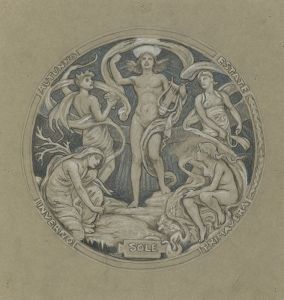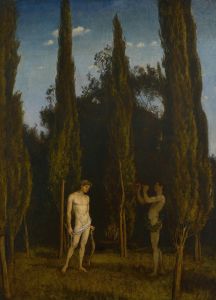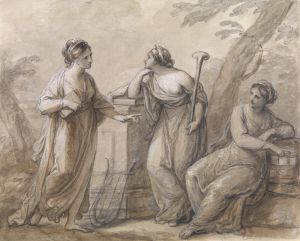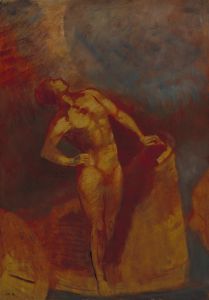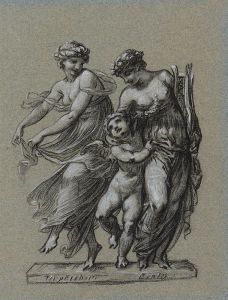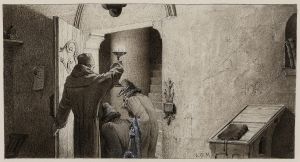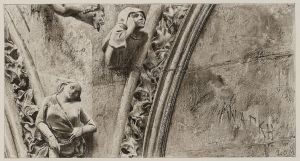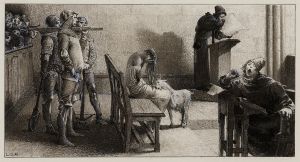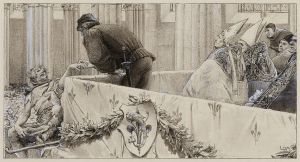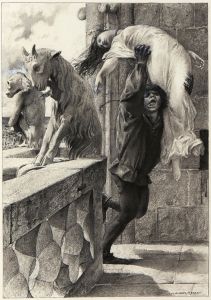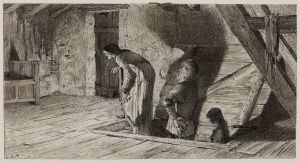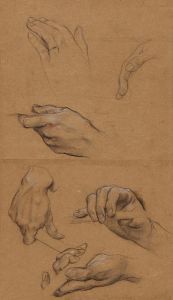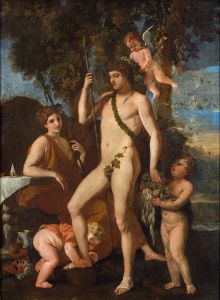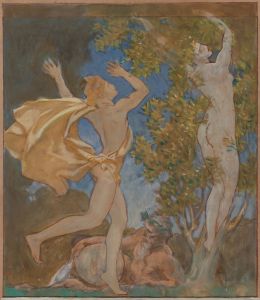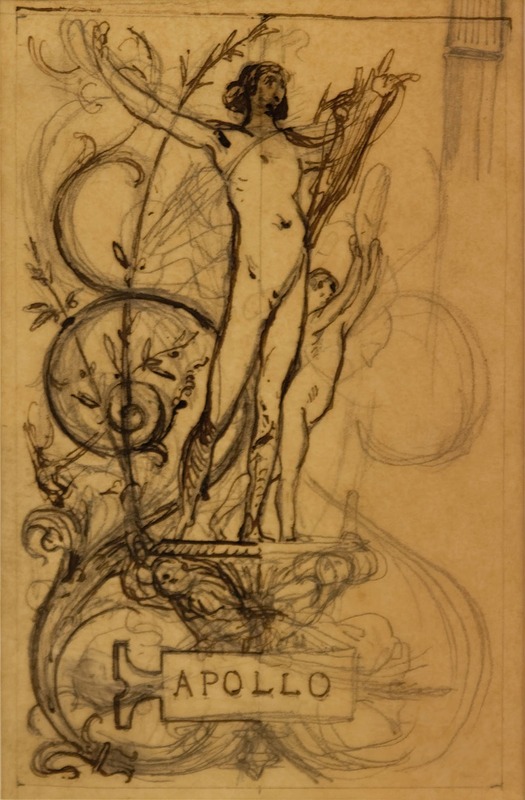
Apollo
A hand-painted replica of Luc-Olivier Merson’s masterpiece Apollo, meticulously crafted by professional artists to capture the true essence of the original. Each piece is created with museum-quality canvas and rare mineral pigments, carefully painted by experienced artists with delicate brushstrokes and rich, layered colors to perfectly recreate the texture of the original artwork. Unlike machine-printed reproductions, this hand-painted version brings the painting to life, infused with the artist’s emotions and skill in every stroke. Whether for personal collection or home decoration, it instantly elevates the artistic atmosphere of any space.
Luc-Olivier Merson was a French academic painter and illustrator, known for his detailed and imaginative works that often incorporated mythological and historical themes. One of his notable works is "Apollo," which reflects his interest in classical mythology and his skill in rendering complex compositions.
Luc-Olivier Merson was born on May 21, 1846, in Paris, France. He studied at the École des Beaux-Arts in Paris, where he was a student of Isidore Pils and Gustave Chassevent. Merson gained recognition for his historical and religious paintings, and he was awarded the prestigious Prix de Rome in 1869, which allowed him to study in Italy. His time in Italy greatly influenced his artistic style, as he absorbed the techniques and themes of the Renaissance masters.
The painting "Apollo" by Merson is a representation of the Greek god Apollo, who was associated with music, poetry, art, and the sun. In classical mythology, Apollo was one of the Olympian deities and was often depicted as a youthful and handsome figure. Merson's depiction of Apollo would likely have drawn on these traditional attributes, although specific details about the composition and style of this particular painting are not widely documented.
Merson's work often featured a meticulous attention to detail and a strong sense of narrative, qualities that would have been evident in his portrayal of Apollo. His paintings were characterized by their clarity, precision, and the ability to convey complex stories through visual art. Merson was known for his ability to blend realism with imaginative elements, creating works that were both technically accomplished and rich in symbolism.
Throughout his career, Merson received numerous commissions for public and private works, including murals, altarpieces, and illustrations. He was also an accomplished illustrator, contributing to various publications and books. His work was well-received during his lifetime, and he was awarded several honors, including being named a member of the Académie des Beaux-Arts.
While specific details about the painting "Apollo" by Luc-Olivier Merson are limited, it is clear that the artist's broader body of work reflects his deep engagement with mythological and historical subjects. Merson's paintings often explored themes of beauty, divinity, and the human experience, making use of classical references to create timeless and evocative images.
Luc-Olivier Merson passed away on November 13, 1920, in Paris. His legacy as an artist is marked by his contributions to the academic art tradition in France and his ability to bring mythological and historical narratives to life through his paintings. Although "Apollo" may not be as widely recognized as some of his other works, it remains a testament to Merson's skill and his enduring interest in the classical world.





